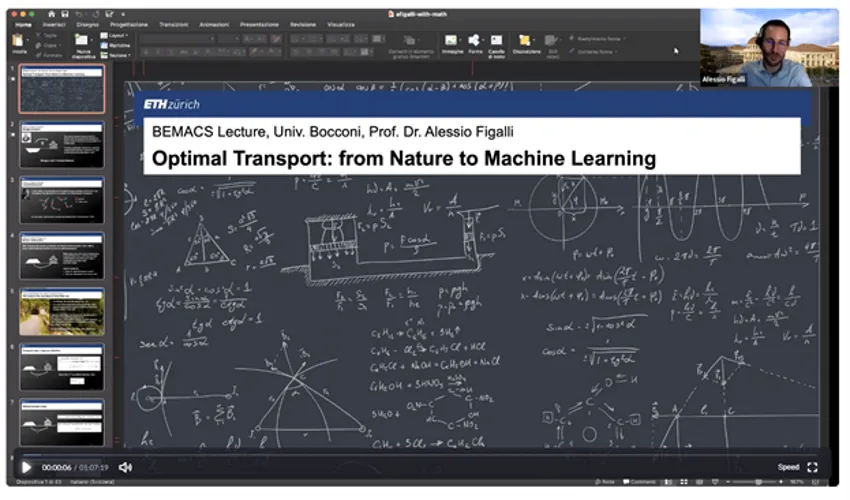
A Fields Medalist Talks with Bocconi Students About Mathematics
According to Pythagoras, reality was the embodiment of mathematics. According to Galileo, mathematics was the language of the universe, the tool without which it is not possible to understand nature. Richard Feynman, in the 1950s, stated that those unfamiliar with mathematics can hardly grasp the most intimate beauty in the world.
What's more, "Mathematics has never been as alive as it is today", Alessio Figalli, winner of the Fields Medal in 2018, reminded the students of the Bachelor in Economics, Management and Computer Science at Bocconi, in the lecture he held on March 2.
"We are in a golden age for mathematics," explains Figalli. "The technology we have now wouldn't exist if there hadn't been research in 'pure' mathematics. This fact is now clear and many companies are investing more and more in 'fundamental' research. On the other hand, the challenges of today's society are an inexhaustible source of mathematical problems. "
The lecture, entitled "Optimal Transport: from Nature to Economics and Machine Learning", accompanied the students through some complex topics of mathematical theory, such as the theory of optimal transport. Figalli himself has contributed significantly to the development of this theory in recent years and it was precisely due to his research in this field that he was awarded the Fields medal, which is considered the mathematician's Nobel Prize. This honor was added to the Stampacchia medal, the Giuseppe Borgia Prize from the Accademia Nazionale dei Lincei, the European Mathematical Society medal and the Carlo Miranda prize, which together qualify him as one of the greatest mathematicians in the world.
Alessio Figalli's lesson is part of a cycle of BEMACS lectures, created to involve students on some of the most interesting topics addressed in the program. "In order to exploit the information hidden in data it is necessary to use quantitative modeling extensively, with disciplines such as mathematics, statistics and computer science that merge to go deep into the problems and find solutions that are not only robust but often surprising and elegant ", explains Emanuele Borgonovo, director of Bemacs. "This is what Prof. Figalli showed us in his Lecture, and what the Bachelor in Economics, Management and Computer Science of Bocconi University proposes to teach to our students".